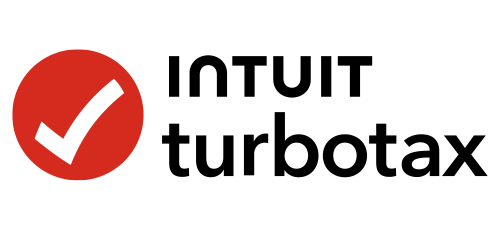With Expert 365, get expert help cleaning up your books for tax time, plus support on sales tax and payroll reporting year-round.
What You Need to Know About Shareholder Agreements
TurboTax Canada
May 22, 2025 | 6 Min Read
Updated for tax year 2025


A new way to file your business taxes is here!
When a company has multiple shareholders, there can be a lot of cooks in the kitchen. While these shareholders can provide pivotal funding and ideas to help companies grow, they can also bring complexities—like differing points of view and conflicts of interest.
Shareholder agreements can help businesses avoid, or at least better navigate, some of these issues. Put simply, shareholder agreements are legal documents that clearly lay out the rights and responsibilities of shareholders to help prevent future issues.
Shareholder agreements are meant to protect both the business and shareholders. But while they can simplify relationships, they also come with certain challenges and tax implications.
Here are the ins and outs of shareholder agreements and how they can impact your corporate taxes.
Key Takeaways
- A shareholder agreement is a legal document outlining the rights and responsibilities of an organizations shareholders or stockholders.
- To help prevent potential disputes, shareholder agreements can help protect minority shareholders and set rules for transfering and selling shares.
- Shareholder agreements can include important information about dividend policies and capital gain exemptions, which can impact corporate taxes.
What's a shareholder agreement?
Shareholders are people who own stock or shares of a corporation. A shareholder agreement is a legal document that spells out the rights and obligations of an organization's shareholders, including both:
- Majority shareholders. Those who own more than 50% of a company's shares.
- Minority shareholders. Those who own less than 50% of a company's shares.
A shareholder agreement should make it clear what shareholders' relationships are to each other and to the business. For instance, an agreement might provide rules for how shareholders can transfer their shares and how to handle any disputes.
Key purposes of shareholder agreements
Shareholder agreements are used to legally stipulate shareholders' roles and protections, helping to avoid any problems and to easily navigate changes to the shareholder group. They can help protect minority shareholders, in particular, who own less than 50% of the shares of a company and may not have voting rights.
Shareholder agreements also provide a framework for how the organization will be managed and governed. For example, corporations are usually managed by the board of directors as a default. But shareholders can come together and sign a unanimous shareholder agreement to transfer power from the directors to the shareholders.
Sometimes there can be conflicts between a business's articles of incorporation (incorporation papers) and a unanimous shareholders’ agreement. This could happen if the articles of incorporation haven’t been updated when changes to the company occurred. If that's the case, the terms and conditions of the unanimous shareholders’ agreement would prevail.
What a shareholder agreement should include
Shareholder agreements aren't boilerplate documents. They can, and should, be customized to the needs of each organization and group of shareholders. In general, a shareholder agreement might cover topics like:
- who can become a future shareholder
- how current shareholders can sell or transfer their shares to each other or third parties
- shareholder voting rights
- what happens to a shareholder's shares if the shareholder is fired or passes away
- how to resolve disputes and avoid litigation
- how profits will be distributed among shareholders, including dividend payments
- restrictions on working with competitor organizations
It's best to have a legal professional draft or review a shareholder agreement to ensure all necessary points are properly covered.
Who needs a shareholder agreement?
Shareholder agreements are not mandatory for companies in Canada. However, they can be valuable for any organization with multiple shareholders—especially those with many minority shareholders or complex shareholder relationships. For instance, family businesses and companies created by long-time friends or colleagues can benefit from these agreements. With a legal document in place, there are no grey areas about shareholder ownership, profits, and responsibilities.
Companies with two co-founders—who are the only shareholders—can also benefit from a shareholder agreement. Even if the co-founders trust each other, a verbal agreement isn't always enough to ensure a sustainable and equitable business setup. The shareholder agreement can provide contingencies if disagreements arise down the line or if one co-founder decides to sell their shares or leave the company.
Pros and cons of having a shareholder agreement
There are many benefits to having a shareholder agreement, especially for businesses with complex corporate structures or minority shareholders.
The biggest pros of shareholder agreements might include:
- Shareholder protections. The agreement can help ensure that minority shareholders aren’t steamrolled by majority shareholder decisions. Minority shareholders might receive "tag-along rights," for example. So if majority shareholders decide to sell, minority shareholders must have the opportunity to sell, too. This way, they're not left with new decision makers in a company they have no control over.
- Dispute resolution. Agreements can provide clear processes for resolving disputes, so companies can avoid costly and lengthy litigation procedures or business disruptions. For instance, if 2 co-founders each own 50% of a company's shares, but they disagree on whether to make a certain investment for the future of the business. So they consult their shareholder agreement, which says in the event of a dispute, they have to consult a third-party mediator or give the deciding vote to a designated director on the board.
- Fair valuation. Agreements can be used to stipulate how shares should be fairly valued for current and future shareholders. Say one of the co-founders in the example above wants out of the company. They can use the terms of the shareholder agreement to price and sell their stocks to make a clean exit.
On the other hand, there are certain disadvantages and risks that might come with shareholder agreements, such as:
- Slower processes. Since shareholder agreements set rules for transferring and selling shares, welcoming new shareholders, and voting, they can potentially lead to slower decision making and execution.
- Minority shareholder input. Majority shareholders may not want to provide certain powers and protections for minority owners because this would reduce their own control over the company's trajectory. Without a shareholder agreement, for example, a majority shareholder might be able to elect a new board member themselves. That board member can then make key decisions for the company. A shareholder agreement, however, might stipulate that all shareholders—including minority shareholders—have an opportunity to elect new board members in a vote.
- Less flexibility. Once completed, shareholder agreements can be difficult to change, especially if all shareholders must agree to any future amendments.
How do share transfers work?
Shareholder agreements can outline how share ownership and share transfers work. Having set processes in place for share transfers can help prevent future issues when it comes to moving shares.
Typically, a shareholder agreement will include specific rules like:
- Right of first refusal. Before a shareholder offers their shares to third parties, current shareholders have the right to purchase them.
- Restrictions. Shareholders may only be able to transfer shares under certain circumstances, such as to set up a trust for estate planning.
- Approvals. The board of directors may have to approve all share transfers.
Defaults. Shareholders may be required to transfer their shares to the other shareholders in certain circumstances, such as bankruptcy, default, or death.
What tax considerations should a shareholder agreement include?
Shareholder agreements can also include key items that impact a company's corporate taxes—especially when it comes to how and when shareholders are paid. This information can impact how much money shareholders earn and report as income on their personal taxes.
For example, shareholder agreements should include the following:
- Dividends policy. Dividends are the profits that a company pays to its shareholders on a regular basis, such as each quarter. A dividends policy stipulates how those profits will be distributed, including amounts, payment forms, and frequency. Dividends are taxed on your personal income tax return.
- Capital dividend account. Corporations in Canada can use a capital dividends account to pay out a certain amount of tax-free dividends to shareholders.
- Capital gains exemptions. Upon selling their shares, shareholders may be able to qualify for the capital gains exemption. With this exemption, only half of the capital gain or profit from their sale is taxable. According to the CRA, the capital gains exemption limit for small business corporations is $1.25 million as of June 25, 2024.
- CCPC status. A Canadian-controlled private corporation (CCPC) is a Canada-based corporation that isn't controlled by non-residents (people based outside of Canada) or any public corporations. The makeup of a company's shareholders can impact if the company is a CCPC. This is important because CCPCs are eligible for various reduced tax rates via the Small Business Deduction (SBD). Most notably, the SBD allows CCPCs to tax the first $500,000 of their active business income at (any income of a corporation other than income from property, a specified investment business or a personal services business) at a reduced rate.
Come time to prepare your T2, you want to make sure you accurately report your business income and deduct all expenses you can. TurboTax Business Assisted can help, guiding you through preparing your credits and deductions and keep more money in your business. You can even have an experienced business tax expert review your return before you file to ensure it is compliant with CRA regulations.
Making the most of shareholder agreements
Shareholder agreements can be critical legal documents for companies with multiple shareholders. With a written agreement in place, shareholders will have a concrete understanding of their contributions and responsibilities as majority or minority owners. As the business evolves, they'll have a roadmap of rules for handling disputes, moving shares, and bringing new shareholders into the company.
Still, like any business contract, shareholder agreements have their complexities and risks. They can also impact how you report income, dividends, and capital gains on your corporate tax return.
You run the business, we handle the taxes
Use TurboTax Business to file your taxes with ease. You can get unlimited help and guidance while you prepare your return, and a final review before you file—so you’re never on your own.
Related articles

© 1997-2024 Intuit, Inc. All rights reserved. Intuit, QuickBooks, QB, TurboTax, Profile, and Mint are registered trademarks of Intuit Inc. Terms and conditions, features, support, pricing, and service options subject to change without notice.
Copyright © Intuit Canada ULC, 2024. All rights reserved.
The views expressed on this site are intended to provide generalized financial information designed to educate a broad segment of the public; it does not give personalized tax, investment, legal, or other business and professional advice. Before taking any action, you should always seek the assistance of a professional who knows your particular situation for advice on taxes, your investments, the law, or any other business and professional matters that affect you and/or your business.









